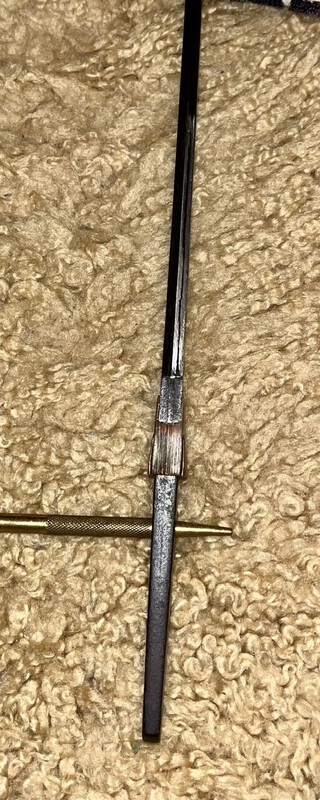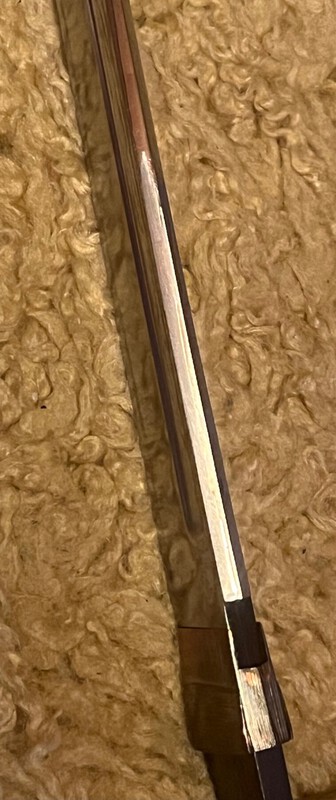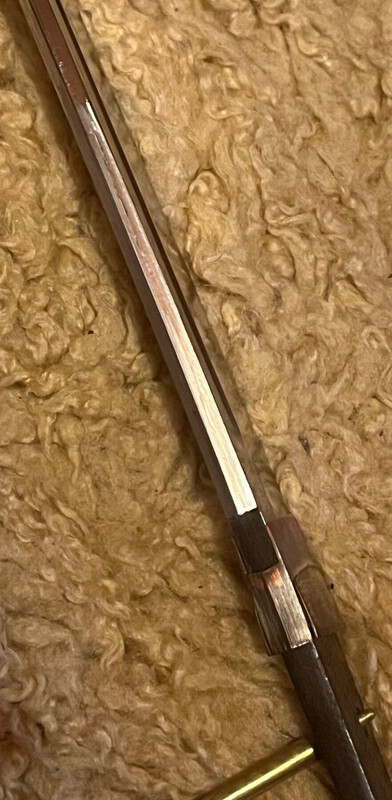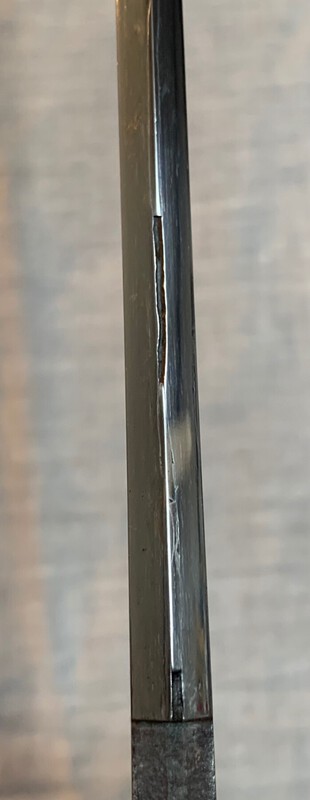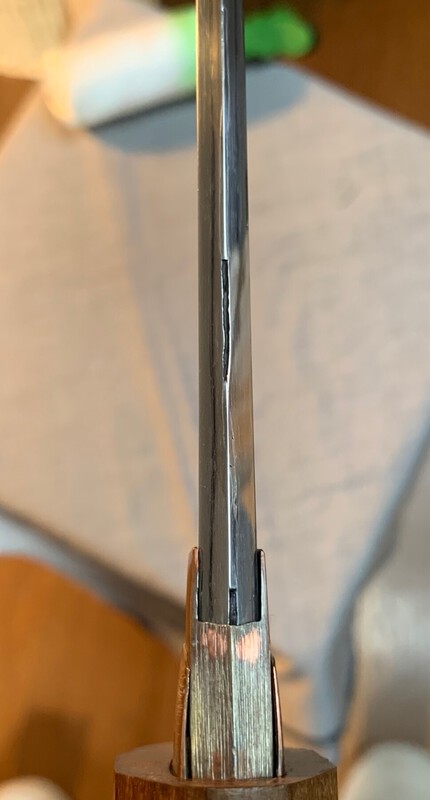-
Posts
12,564 -
Joined
-
Last visited
-
Days Won
202
Content Type
Profiles
Forums
Events
Store
Downloads
Gallery
Everything posted by Bugyotsuji
-
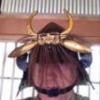
Help on the value of a damaged Katana
Bugyotsuji replied to Kyle68's topic in General Nihonto Related Discussion
The abrasive sanding has ruined it… -
See Sako Kaneyoshi. No pic here, but it was in naval mounts. 酒向兼義作 | 日本刀・刀剣購入・販売・買取なら刀剣杉田 (token-net.com)
-

Some teppo pics/info for gun enthusiasts
Bugyotsuji replied to mecox's topic in Tanegashima / Teppo / Hinawajū
Nice find, Mal. Thanks for the photos. (Legally these registration cards, like that one from Hyogo Prefecture, are to be surrendered before leaving Japan, both for Teppo and Nihonto.) -

Help on the value of a damaged Katana
Bugyotsuji replied to Kyle68's topic in General Nihonto Related Discussion
Nothing is absolute here, though. To the right person this package could be worth more than a few hundred dollars. You have a blade to study if you want to learn about Kunisuke and/or Shintō blades in general, and in another collecting field you have a piece of WWII memorabilia with the romantic notion of bullet damage. Plenty of plus factors! A future owner might even consider reshaping this katana into a wakizashi, for example. How long is it? Interesting puzzle, thanks for posting. -
Length 8 sun and six bu. Hozon status awarded. Jan 31, Heisei 26. No other information. How does it look?
-
四六 is 46
-

Edo Period Corner Part II
Bugyotsuji replied to estcrh's topic in General Nihonto Related Discussion
Interestingly, following Jean’s post above, I found a faint line right along the top of the Nakago! (Luckily the sheep stayed still long enough to enable the shots.) -

Edo Period Corner Part II
Bugyotsuji replied to estcrh's topic in General Nihonto Related Discussion
Thanks for the replies and thoughts. I tend to agree with both. I have had the 'trenches' back-filled, and now plan to contact a willing Togi-Shi. Left facet of new mune, (habaki pulled back) in rough state Right facet, pre togi -

Edo Period Corner Part II
Bugyotsuji replied to estcrh's topic in General Nihonto Related Discussion
-

Translation please? Anything helps. Thank you
Bugyotsuji replied to Ben Eagle's topic in Translation Assistance
Nunomaki ヌノマキ Fujii フジイ Hiroda/ta 広田 (?) -

Edo Period Corner Part II
Bugyotsuji replied to estcrh's topic in General Nihonto Related Discussion
On Saturday evening at the local NBTHK sword meeting I got word that two wakizashi projects of mine have moved a step forwards! One is the umegané work on a Tenbun 3 Sukesada in shirasaya. This will be interesting to see, before it gets sent off for togi. I will try and get some ‘before’ and ‘after’ shots. The other is a new tsukamaki on the koshiraé of a mumei wakizashi. The old tsuka maki ito was badly perished. (One artisan had also advised me to change the sageo to black at the same time, but the tsukamaki-shi advised against. “It would be a pity to get rid of such a good quality sageo”, he said. Will post some shots here if the work looks decent. -

Name and Date of Cutter/test Please?
Bugyotsuji replied to Bruce Pennington's topic in Translation Assistance
Bruce, in relation to this I’ve updated the other thread. -
A very nice and unusual find, Colin. Congratulations! I did some experiments with one and although dim, the light was considerably better than I had expected. In a blacked-out world with no electricity, they would have thrown a circle of useful light in one direction. Look for ‘gandō’ 龕灯 chōchin. Also 強盗提灯 https://ukiyo-e.org/...e/ritsumei/arcUP3961
-

Did the Japanese use patched roundballs in teppo?
Bugyotsuji replied to Rolland's topic in Tanegashima / Teppo / Hinawajū
The quick answer is yes, Rolland, they did use patched ball. I have seen original examples, including ball pre-wrapped and glued with what looked like squares of washi paper patch. The long answer is that no, I am not aware of the earliest recorded illustration or mention of patched ball use in Japan. This would be like searching for the holy grail! (I was surprised to see an Inoué School manuscript of around 1600 showing inventive use of doubling or cutting or linking lead ball.) Since lead fouling of the bore after a few shots was a huge problem from the very early days, I expect such an invention would have moved around the world in gunnery circles very quickly. -

Please help identify
Bugyotsuji replied to Vintage5434's topic in General Nihonto Related Discussion
Tadamitsu was a good smith of the time but you do find fakes. The blade steel should clarify it for you. Is that top photo aligned vertically with the camera, on a flat surface? -
Me too, an axe and a Matsukawa-Bishi (Hishi) Kamon.
-

WW2 Japanese sword by Kosuke Sukesada
Bugyotsuji replied to Swords's topic in General Nihonto Related Discussion
When you buy Kozuke Daijo Sukesada, you need to be aware that he was verging on genius, so there are many fakes imitators out there. The paperwork above does not guarantee anything, if you read the last few lines. "There are copies of his work." "The workmanship is similar." "The signature is close." "A shinsa should be consulted as a final authority." Weasel wording, perhaps, but it says you can own something with a famous signature on it. As David intimates, if it's a bargain, then you should imagine 99% that is it a work done in homage, even as you part with your cash. -
‘Pristine’ will cost you, because many others are looking for the same thing. Accept some damage, (think of it as proof of age), and you should be able to find something genuine which also looks good in a display.
-
“Omote (Front): 八幡大菩薩 Hachiman Dai-Bosatsu”
-
-
Owning several versions of these, I am ashamed to say that I do not know how they are called. I have searched various websites but each photo has a different description. Maybe start your search description with Netsuke, then sagemono, and you can find illustrations of cups on strings, although some of the enclosing ones with lids did contain food. Bakuro Sakazuki 馬喰盃 馬喰盃とは - Bing images 骨董根付提げ物盃 - Bing images 道中盃 Dochu sakazuki (or 'choko') Yours is made of coconut, so add ヤシ or 椰子 (yashi) 骨董根付提げ物盃 - Bing images
-
Hmmm, they look to me like アヘン (ahen) 芥子 (keshi ) poppy pods and leaves.
-
Perhaps something very fleeting, snow balanced on sasa leaves... Reminds me somehow of the snow on the cartouche post of Hiroshige etc., Toyokuni Ga. Mitsuke () (nms.ac.uk) 歌川国貞: 「雙筆五十三次 宮」 「熱田駅寐覚里遠景」 - 東京都立図書館 - 浮世絵検索 (ukiyo-e.org)




